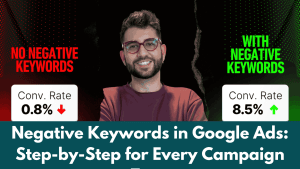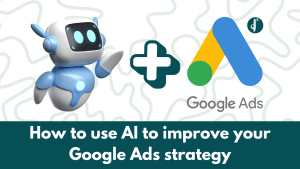Right, so there’s something the SEO industry doesn’t want you to know about all these new acronyms floating around – GEO, LLMO, AEO…
And what they don’t want you to know is dead simple: it’s the same stuff, just with fancier names and bigger price tags.
Today I’m going to expose exactly what’s happening behind the scenes, show you the real data they’re not sharing, and reveal why some “experts” are desperately trying to convince you that SEO is dead.
This might ruffle some feathers, but someone needs to say it.
First of all…who am I?
I’m Dan from Danielog, and I help Australian businesses cut through the marketing BS to actually grow their online presence.
And before we dive in, let me be clear – what I’m about to share might upset some people in the industry. But you deserve to know the truth about what’s really happening with your marketing budget.
The truth they don’t want you to know
Here’s what they don’t want you to know: In Australia alone, businesses are projected to spend $1.5 billion on SEO services in 2025. That’s a 12% increase from 2024. Small businesses are investing over $1,200 monthly on SEO.
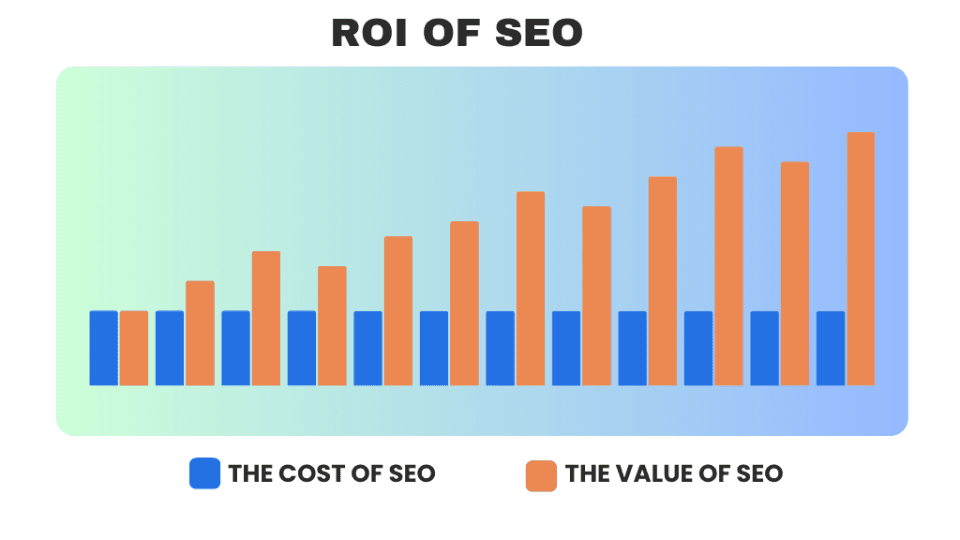
The industry secret
Now, if SEO was truly dead like they keep telling you, why would smart Australian business owners be throwing MORE money at it? Because the people screaming “SEO is dead” have something to sell you.
The hidden truth about AI
Here’s what’s actually happening with AI and search. Whether we’re talking about Google’s AI Overviews, ChatGPT, or Perplexity, they all have one thing in common: they can’t create content out of thin air.
Google themselves say that large language models are essentially “autocomplete mechanisms” that predict tokens based on existing content. They need source material – real, original content created by real humans and real businesses.
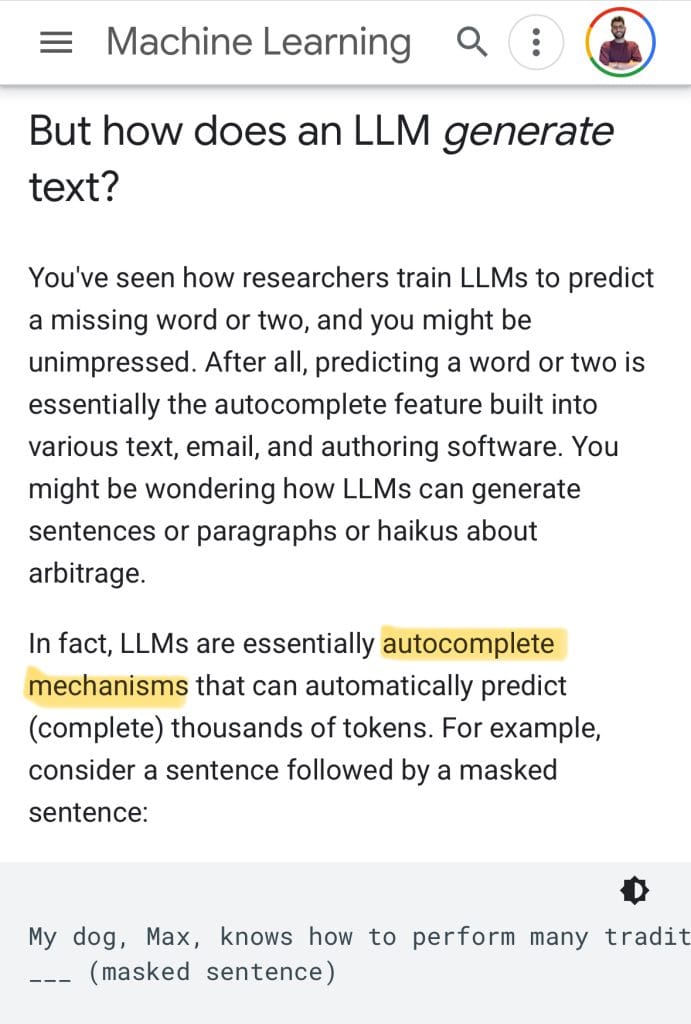
The four pillars haven’t changed
For any AI system to use your content, it needs to:
- Discover your content (crawling)
- Access your content (indexing)
- Understand your content (parsing)
- Rank your content against alternatives (positioning)
Sound familiar? That’s because it’s literally the same process SEO has been optimising for since day one.
The data doesn’t lie
Here’s what Google officially recommends for appearing in AI Overviews – and I’m reading this straight from their documentation:
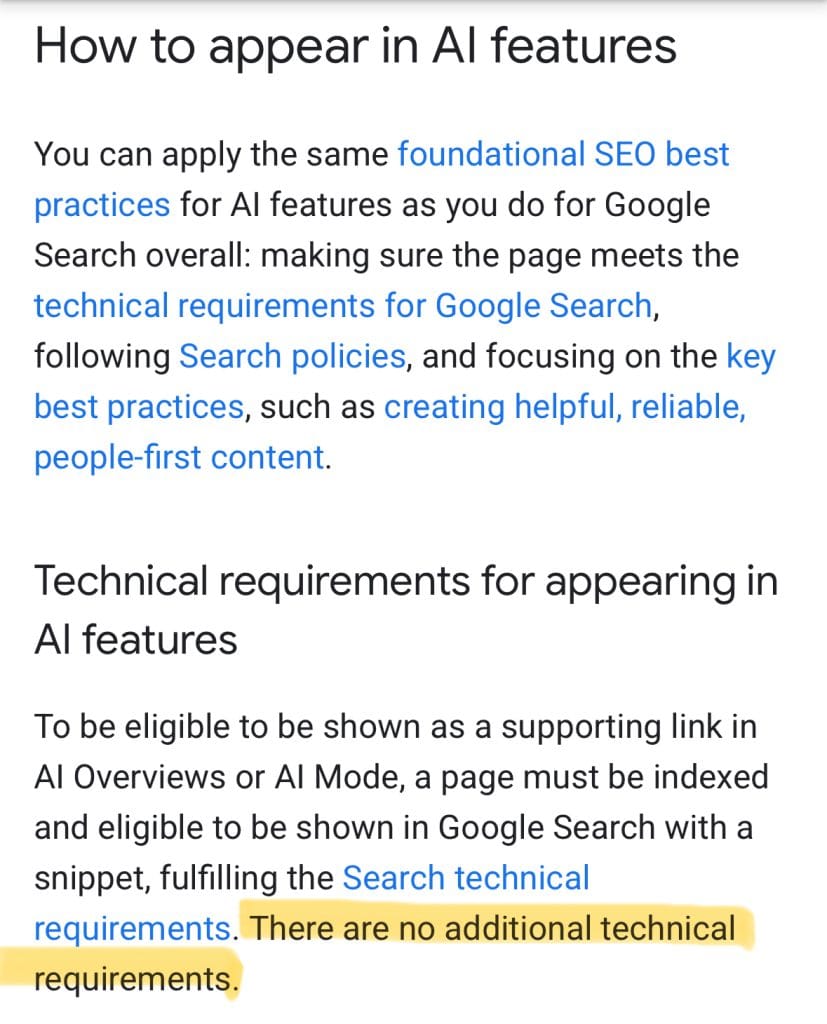
Google’s own recommendations
“Apply the same basic SEO best practices to AI features as you would to Google Search generally: ensure your page meets Google Search’s technical requirements, follow Search policies, and focus on key best practices like creating helpful, reliable, people-first content.“
No additional technical requirements. It’s the same SEO we’ve been doing for years.
Real performance data
Let me show you some recent research. According to SE Ranking, AI Overviews appeared in 18.76% of US search results in November 2024. But here’s the kicker – sites that focus on expertise and authority are seeing 15-45% increases in visibility within these AI results.
Over 53% of all website traffic still comes from organic search. That’s not changing anytime soon.
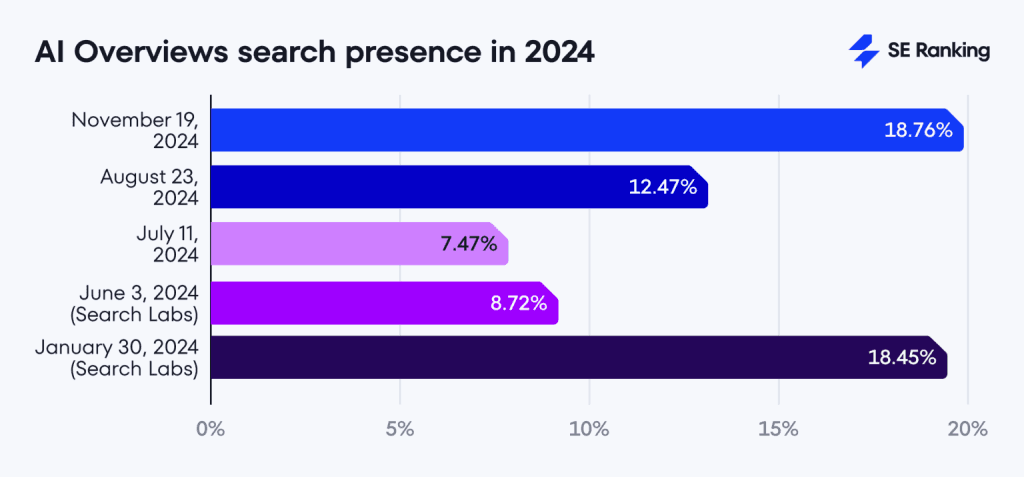
The australian market reality
With over 22 million Australians active online, and digital consumption at 3 hours per day, the opportunity for businesses to connect with their audience through search has never been bigger.
The challenge isn’t that SEO is dead – it’s that it’s evolving, just like it always has.
The rebranding scam exposed
Here’s what they really don’t want you to know about GEO, LLMO, and AEO:
- GEO (Generative Engine Optimisation) – Optimising for AI-generated search results
- LLMO (Large Language Model Optimisation) – Optimising for LLM platforms
- AEO (Answer Engine Optimisation) – Optimising for direct answer systems
The dirty secret? Look at what these actually require:
- Quality, structured content
- Proper technical SEO
- E-E-A-T (Expertise, Experience, Authority, Trust)
- Schema markup
- Internal linking
- Page speed optimisation
IT’S THE SAME BLOODY THING! They’ve just slapped new labels on SEO practices we’ve been doing for years!
The psychology behind the con
Here’s what’s really happening. Picture this scenario:
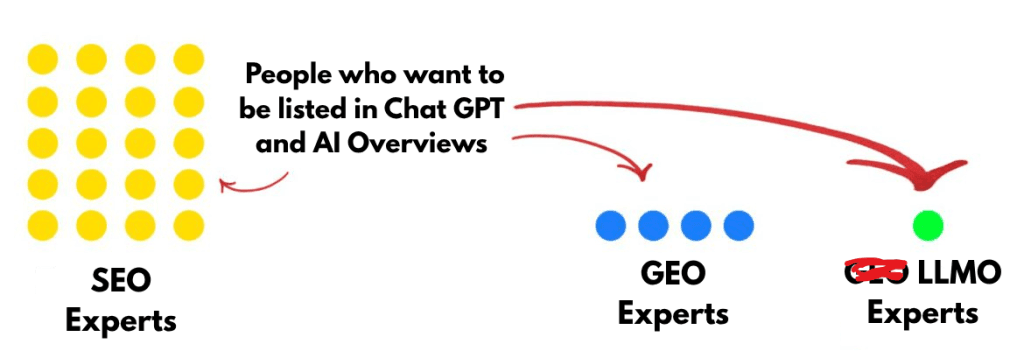
You’ve got established SEO professionals doing their thing, helping businesses rank and grow. Then AI comes along, and suddenly there’s an opportunity for some clever marketers to position themselves as the “new experts” in something that supposedly replaces SEO.
Instead of admitting that SEO is evolving (like it always has), they create new terms to make it seem like what they’re doing is revolutionary and what everyone else is doing is obsolete.
It’s brilliant marketing, I’ll give them that. But it’s also misleading.
The question that exposes everything
Here’s the question that will expose any BS artist trying to sell you rebranded SEO:
What specifically are you doing differently from traditional SEO practices, and can you show me the performance data that proves it works better?
If they can’t give you concrete, measurable differences with real data to back it up, you’re being sold the same services with a 200% markup and a fancy new name.
This is the question they don’t want you to ask.
What they don’t want you to do
Here’s what they really don’t want you to know – you can succeed with the fundamentals:
The industry doesn’t want you to know this
- Create genuinely helpful content – AI systems reward content that actually serves users (not buzzword-stuffed garbage)
- Optimise your technical foundation – Fast loading, mobile-friendly, properly structured (same as always)
- Build real authority – Through expertise, not just keywords (E-A-T isn’t new)
- Structure your content clearly – Use headers, bullet points, and logical flow (basic SEO)
- Implement schema markup – Help search engines understand your content (been around for years)
The secret they’re hiding
The businesses winning in AI search are the same ones that were winning in traditional search – they just kept doing good SEO while others chased shiny new acronyms.
The “secret” is there is no secret. Good SEO adapted for AI is still just good SEO.
Key takeaways
Look, I get it. The industry profits from confusion and fear. But here’s what they don’t want you to know:
- SEO isn’t dead – it’s just evolved, like it always has
- AI search systems use the same fundamental principles SEO has always used
- These new acronyms are mostly marketing spin to justify higher prices
- The businesses succeeding adapted their existing SEO (they didn’t throw it away)
What this really means for you
Don’t let industry fear-mongering push you into expensive “revolutionary” services that are just repackaged SEO with a 200% markup.
The uncomfortable truth they don’t want you to know? Good SEO has always been about serving users better. Whether those users are human or AI doesn’t change the fundamentals.
Next steps
If you need help with SEO that actually works (not rebranded nonsense), you know where to find me. I’ll give you straight answers, not marketing fluff.
Until next time, keep asking the hard questions and don’t let anyone convince you that the fundamentals don’t matter.
They do. They always have. And that’s what they don’t want you to know.
Cheers!




